From concern to adaptation
Decree 70/2025/ND-CP of the Government amending and supplementing a number of articles of Decree 123/2020/ND-CP dated October 19, 2020 of the Government regulating invoices and documents stipulates that from June 1, 2025, households and individuals doing business with revenue of 1 billion VND/year in a number of industries (food and beverage, hotels, retail, passenger transport, beauty, entertainment...) must use electronic invoices via cash registers connected to tax authorities.
Businesses should proactively upgrade their invoice system and declare their revenue honestly to avoid being audited and charged later. Illustrative photo |
However, according to Circular 32/2025/TT-BTC dated May 31, 2025, recently issued by the Ministry of Finance, guiding the implementation of a number of articles of the Law on Tax Administration, Decree 123/2020/ND-CP and Decree 70/2025/ND-CP of the Government related to invoices and documents, the use of cash registers is not mandatory for households that have registered to use electronic invoices before June 1, 2025.
However, many small businesses are still concerned that implementing the new regulations will create additional costs and management pressure.
Sharing with reporters of the Industry and Trade Newspaper, Mr. Huan, who runs a convenience store in Phuong Mai Ward, Hanoi, said: “ In the past, when customers transferred excess money to exchange for cash, I was still willing to refund without any problems. However, now, if the software records higher revenue than the actual amount, I risk being taxed on that excess amount. From June 1, although it is not mandatory to use cash registers, if not implemented promptly, errors in revenue declaration are very likely to occur. I have to ask customers to transfer the correct amount to minimize data risks, although doing so may lose customers, but I have no other choice .”
Meanwhile, Mr. Khuong, who runs a grocery store in Kim Lien ward, Hanoi, said: "The business of selling fresh vegetables and food is unique and difficult to issue full invoices because the goods often do not have barcodes, and the volume and price change daily."
Meanwhile, most customers still pay in cash, but the software requires detailed data entry for each transaction. This makes me worried that I will not be able to keep up with the process, which can easily lead to errors, affecting revenue declaration and tax obligations.
Many business households are expressing confusion over the new tax policy regulations that have just come into effect. Photo: Thanh Tuan |
However, according to a survey by reporters, some businesses have converted early and said that using connected cash registers is not too complicated if you are familiar with technology.
“ Each invoice entered into the software will be automatically sent to the tax authority, and the system will also calculate the lump-sum tax rate. This process helps to make revenue transparent, but to do this, the seller must be fully equipped with connecting devices, a standard software account, and especially needs time to get used to the operation. For small businesses like me, serving customers while following the correct procedures on the software is a great deal of pressure, ” said Ms. Bich, owner of a grocery store on Luong Dinh Cua Street (Hanoi).
What is the solution to prevent tax loss?
Regarding the fact that right after Decree 70/2025/ND-CP and Circular 32/2025/TT-BTC took effect from June 1, there was a situation where some small businesses, especially in the food and beverage and retail sectors, refused to accept bank transfers or asked customers not to record the transaction content. Many stores hung signs saying "cash only", causing confusion for consumers and raising questions about tax compliance in the context of tightening management of electronic revenue.
Speaking to reporters, Mr. Nguyen Tien Minh, Deputy Head of the Tax Department of Region I (Hanoi - Hoa Binh) said that if not accepting payment via bank transfer is a management method of business households, this method is going against the orientation and policy of the Party and Government in recent times on promoting non-cash payments, building a digital society, digital economy and digital citizens.
Fearing that the amount of tax payable will increase when receiving payments via bank transfer, many businesses have switched to requiring customers to pay in cash or intentionally writing ambiguous transfer details to avoid revenue checks. Photo: Thanh Tuan |
“ In case a business household or individual business deliberately uses the form of cash collection to avoid tax obligations or evade taxes, the law on tax administration has full provisions on sanctions, including: Tax determination, penalties for false declaration, penalties for tax evasion; and may even be prosecuted for criminal liability if the violation is serious, ” Mr. Nguyen Tien Minh emphasized.
Previously, the Tax Department of Region I sent an open letter to households and individuals doing business in the area, warning of the situation of avoiding transparent transactions by refusing to transfer money or deliberately using ambiguous payment content such as "paying loan money", "shipping money", "coffee money"... and even charging additional fees when customers choose to pay via bank.
According to the tax authority, this behavior not only affects the rights of consumers but also shows signs of violating the law. Revenue for calculating value added tax is the total amount of money that a business household receives, regardless of whether it has been collected or not, regardless of whether it is paid in cash or by bank transfer.
Therefore, intentionally concealing revenue through non-transparent payment methods will not reduce tax obligations but will also put businesses at risk of being subject to tax assessment, collection, administrative penalties or even criminal prosecution if there are signs of tax evasion.
According to Dr. Nguyen Hung Cuong, Head of the Department of Business Administration, Faculty of Business Administration, University of Transport Technology, to solve the problem of invoice avoidance and promote transparent payments, we cannot rely solely on inspections or administrative sanctions. The tax sector needs to develop a long-term strategy that puts small businesses at the center of the digital transformation process.
Regarding the above issue, Dr. Nguyen Hung Cuong proposed: Firstly , the electronic invoice system needs to be designed to be user-friendly, easy to use, cost-effective, and accompanied by on-site technical support, as well as clear communication. Electronic invoices should not be seen as a tool to catch errors, but should become a means to protect the legitimate rights of sellers.
Second , it is necessary to promote connectivity and data sharing between banks, e-wallets, digital platforms and tax authorities. Applying technologies such as artificial intelligence and big data analysis will help detect irregularities in transactions without having to conduct widespread inspections, avoiding unnecessary pressure on businesses.
Third , instead of just applying sanctions, the State needs to design incentive mechanisms. Business households that declare honestly and fully connect electronic invoices can enjoy tax incentives, support in accessing capital and accompany the digital transformation process in the first 1-2 years. This will be a real incentive step, helping to form a sustainable tax compliance culture.
The tax sector is providing technical support for households and individuals with annual revenue of VND1 billion to soon deploy the synchronous use of electronic invoices from cash registers connected to tax authorities in June 2025. This policy aims to increase transparency in business operations, ensuring correct and sufficient tax collection. The tax authority encourages consumers to request invoices through loyalty programs, and at the same time, business households can choose to declare taxes monthly or quarterly. |
Thanh Binh
Source: https://congthuong.vn/siet-hoa-don-dien-tu-ho-kinh-doanh-nho-loay-hoay-thich-ung-391507.html


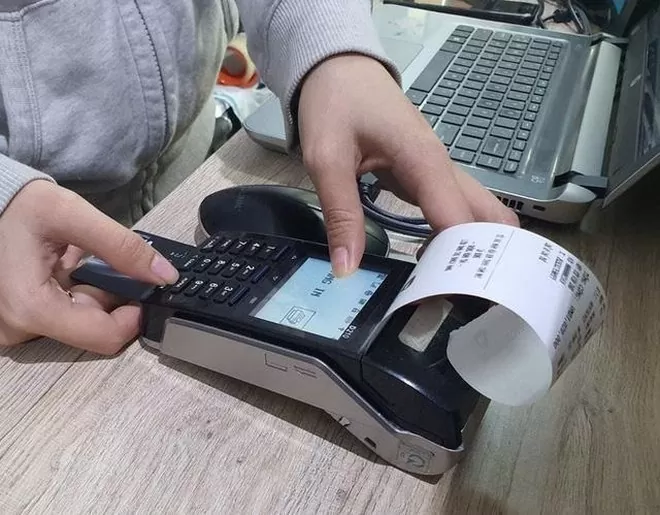
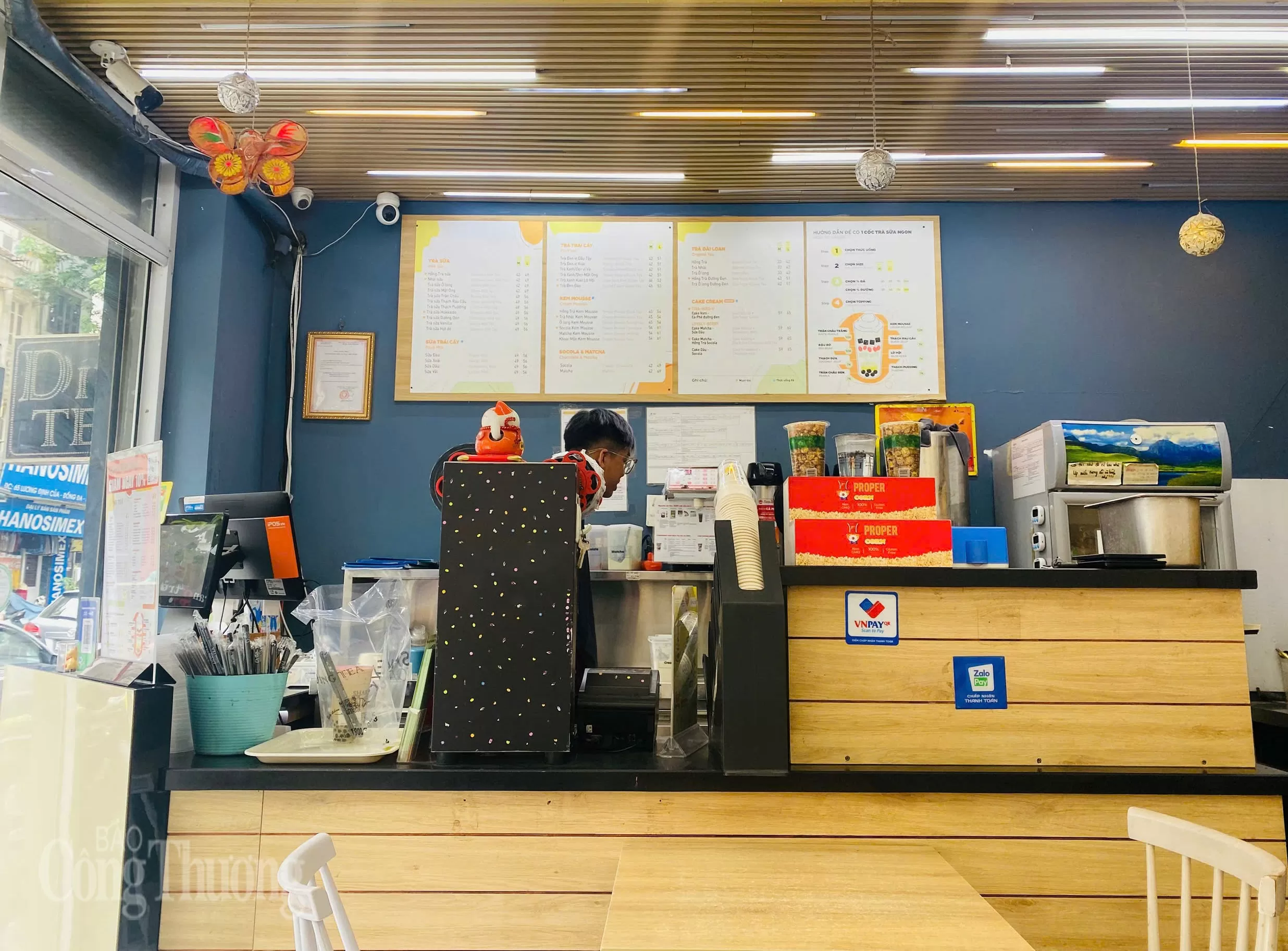
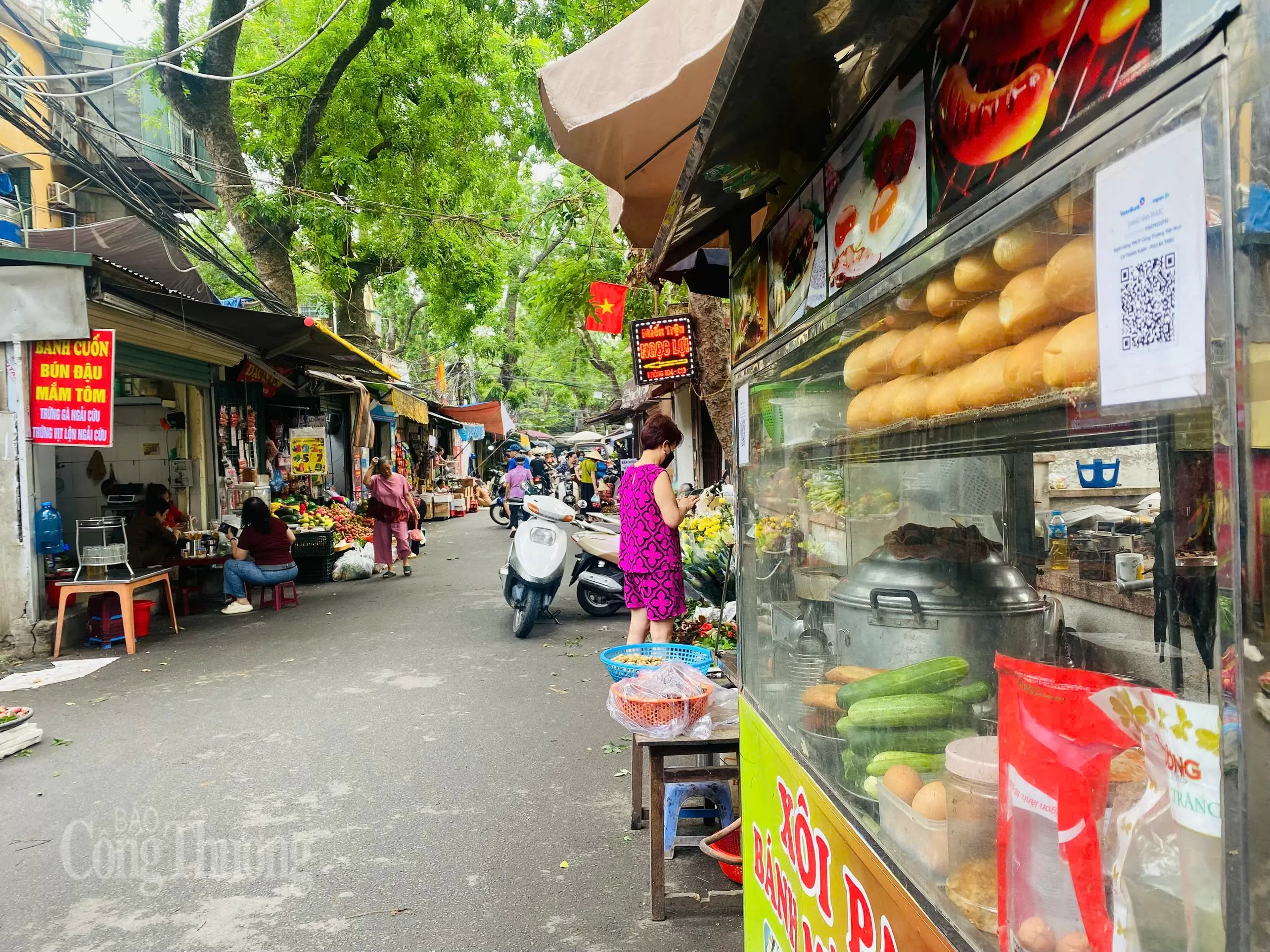










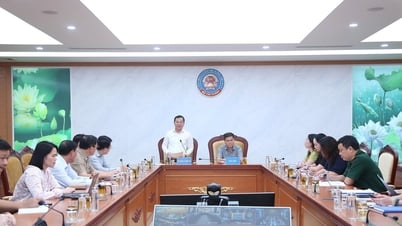


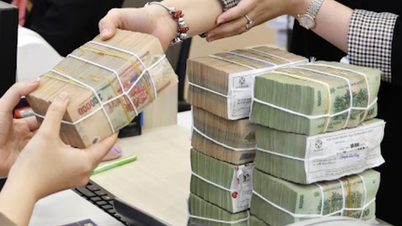

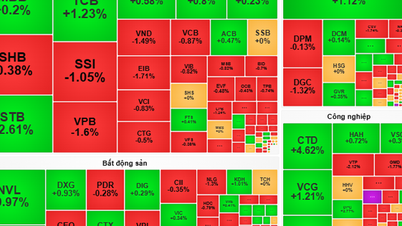









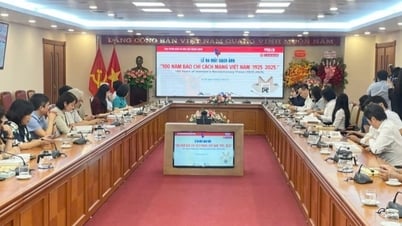






















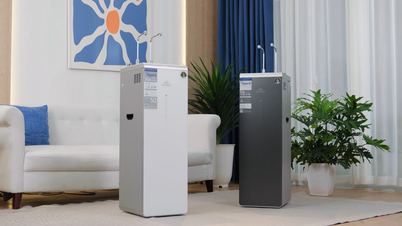

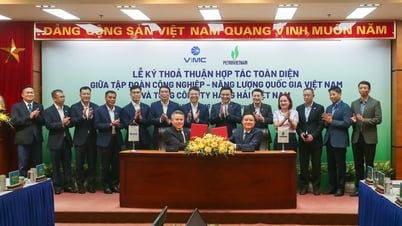
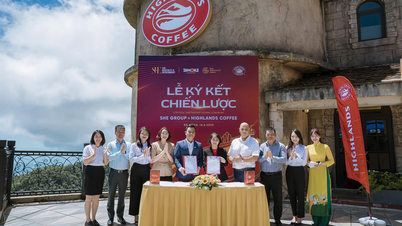


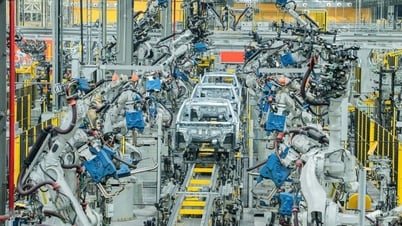















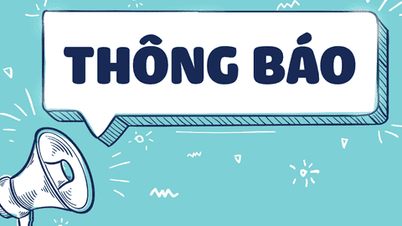




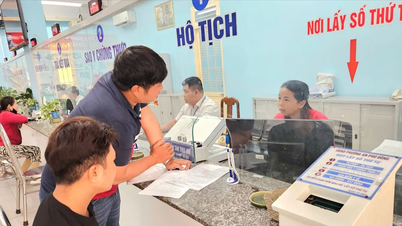


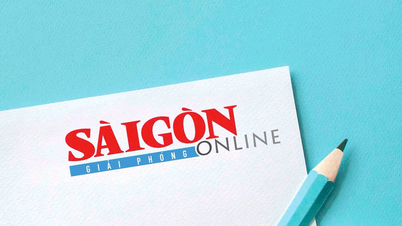













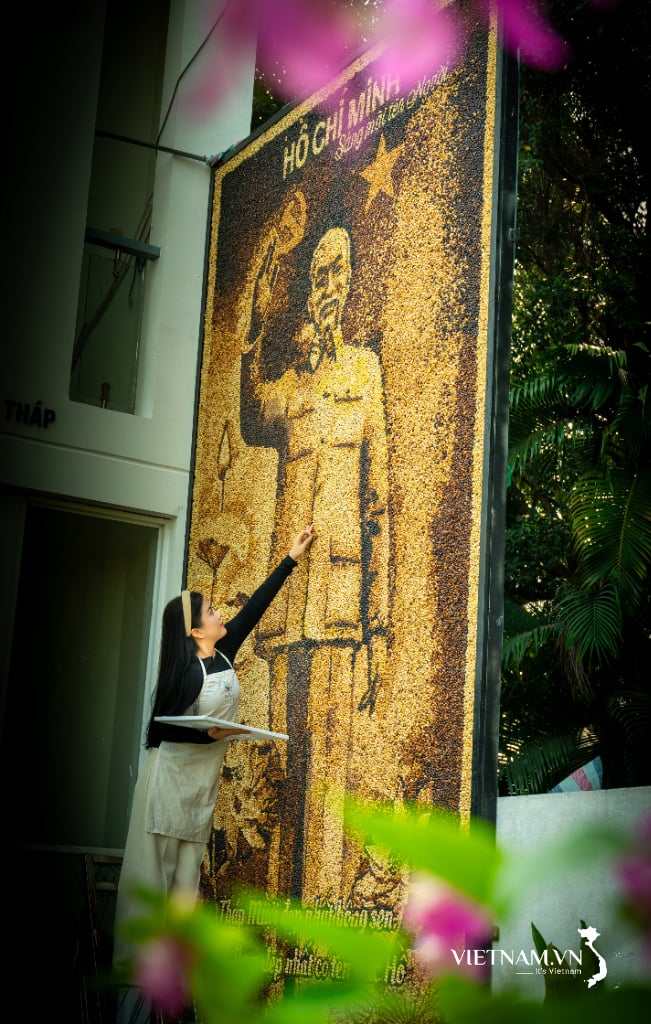



Comment (0)